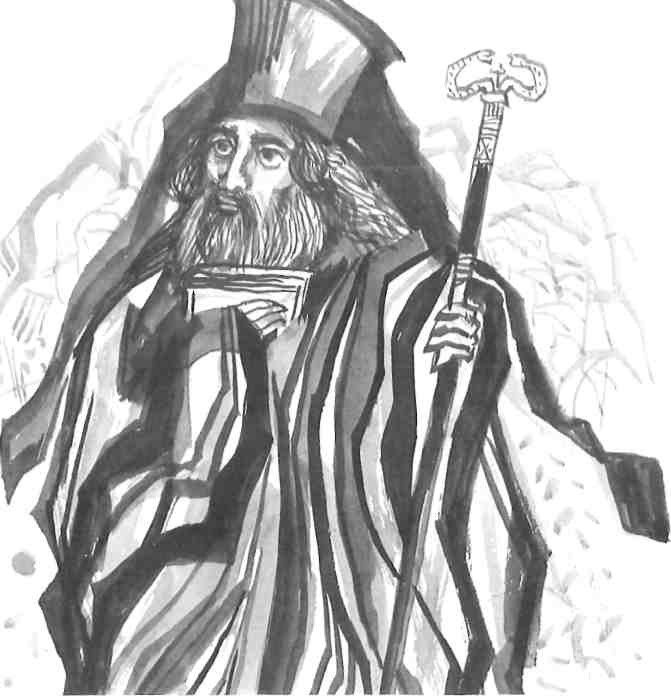
The legendary hero-king Theseus is said to have encountered and overcome fierce brigands on his way to claim his inheritance at Athens. Story recounts that one of these wild hillmen chiefs, Pirithous, out of admiration for the Athenian hero, struck up a friendship with him. Together they shared many adventures, one of which was the defeat and capture of the Amazon queen, Hippolyta.
During the Turkish occupation, a new and formidable breed of mountain robber made a dramatic appearance in Greek history — the Klepht.
It is not known exactly when these klephts, identifiable as such, first emerged as a historical factor in the great struggle for Greek independence, but early tradition testifies to their national popularity in countless songs and ballads celebrating their daring exploits.
After the fall of Constantinople, many high-placed ecclesiastics sought refuge in Italy and endeavoured still, with remarkable tenacity and eloquence, to stir up sympathy and aid for the Holy City.
One of the most heroic of these pioneer – patriots of the fallen Byzantine Empire was Theodore, Bishop of Ephesus. Not content to lead a life of patient resignation in exile, he tried, with like – minded exiles of note, to enlist the support of Rome and the European powers in a new crusade against the Turks, and to make common cause with the Christian Church to regain Constantinople and restore the thousand – year old empire.
The grand effort failed and Theodore, sadly disillusioned, left Italy and made his way to Epirus, where he landed with no worldly goods.
He had heard that somewhere in the most inaccessible of the mountains was a wild shepherd clan which clung fiercely to Greek tradition, rejecting absolutely all Ottoman influence.
This was was the flame he had tried to kindle in Europe. High amid the dark pines and thunder clouds of the Pindus Range, the light flickered small and elusively — but alive!
Theodore, with only his crozier and his Bible, went in search of it.
The track led him through burned and ruined villages and upward, always upward, higher and higher, where sheer cliff face and plunging gorge guarded the lonely peaks.
At last he found — or was allowed to discover — the mobile strongholds of those ruggedly proud mountaineers, surely the wildest, most individualistic race of Christians on record.
So haughtily independent were they that, Christian though they were, they had never submitted to the Byzantine emperors!
Now, with a rising tide of barbarism all around, they fought guerilla style, perpetually striking and then retreating to the heights where they lived, communicating through a network of tortuous goat tracks from one band to another.
How could the pleasant mannered and elegantly educated bishop adapt to such rude society? The answer is unequivocal. They loved him and he remained with them for the rest of his life.
These then were perhaps the original klephts, banding together in common cause in the mid-15th century to plunder the invader and defy foreign domination.
Theodore has left some record of them in his letters. His must have been a gentle nature, in spite of his crusading zeal, for he taught the wild mountain warriors to show generosity to the weak and persuaded them to adopt better and softer attitudes toward women.
He never forgot Constantinople nor his dream of regaining the beloved city on the Bosphorus.
Throughout the mountainous regions of Epirus and Thessaly, his watchword burned and travelled like a beacon fire: Christos aneste! — the Greek Easter greeting which was to become the rallying cry for Greek liberty fighters down the centuries to the final victorious onslaught four centuries later.
From his shepherd’s hut Theodore wrote to Lascaris, ‘Endeavour to rouse your polished nations as I am firing the spirits of our mountaineers!’
When Theodore died, those rugged men of the mountains wept openly, and people travelled for days to obtain a piece of his garments or a page from his old, worn Bible.
To read of so steadfast a character now refreshes the soul, in these cynical days of chop and change and the tedious pursuit of the fast-fading ‘latest.’
Well may he rest in his mountain fastness — the good Bishop Theodore of the Klephts.







